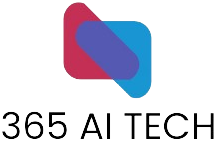In today’s fast-paced business landscape, efficiency is paramount. Every organization strives to streamline processes, maximize productivity, and ultimately, enhance profitability. One of the most revolutionary tools in achieving these goals is Artificial Intelligence (AI) automation. From automating repetitive tasks to optimizing decision-making processes, AI offers a plethora of opportunities to boost efficiency across various business functions.
Understanding AI Automation
AI automation involves the use of advanced algorithms and machine learning techniques to automate tasks that would otherwise require human intervention. By leveraging data-driven insights and predictive analytics, AI systems can perform a wide range of functions autonomously, freeing up valuable time and resources for employees to focus on high-value activities.
Key Benefits of AI Automation
1. Increased Productivity
AI automation eliminates manual processes, allowing employees to accomplish tasks more quickly and accurately. By delegating repetitive tasks to AI systems, organizations can significantly increase productivity and output without proportionately increasing labor costs.
2. Enhanced Decision Making
AI algorithms can analyze vast amounts of data in real-time, enabling organizations to make informed decisions more efficiently. Whether it’s identifying market trends, optimizing supply chain logistics, or predicting customer behavior, AI-driven insights empower businesses to stay agile and competitive in dynamic markets.
3. Cost Savings
By automating repetitive tasks and optimizing resource allocation, AI automation helps reduce operational costs. From minimizing wastage in manufacturing processes to optimizing energy consumption in facilities, AI-driven efficiency improvements translate directly into bottom-line savings for businesses.
4. Improved Customer Experience
AI-powered chatbots and virtual assistants enable businesses to provide round-the-clock customer support and personalized interactions. By automating responses to common inquiries and resolving issues in real-time, organizations can enhance the overall customer experience and foster stronger relationships with their clientele.
5. Scalability and Flexibility
AI automation solutions are highly scalable, allowing businesses to adapt to changing demands and scale operations seamlessly. Whether it’s handling seasonal fluctuations in demand or expanding into new markets, AI-driven systems provide the flexibility needed to grow and evolve without constraints.
Conclusion
In conclusion, AI automation holds immense potential to revolutionize business operations and drive significant improvements in efficiency. By harnessing the power of artificial intelligence, organizations can unlock new levels of productivity, agility, and innovation, paving the way for sustainable growth and success in the digital age.

